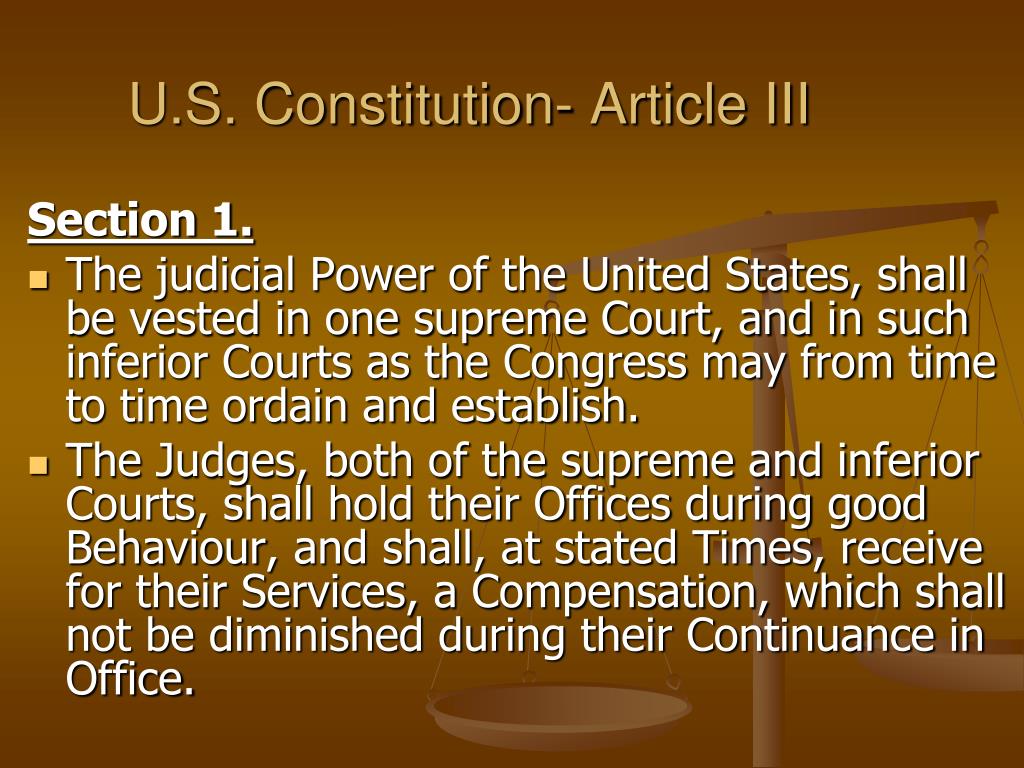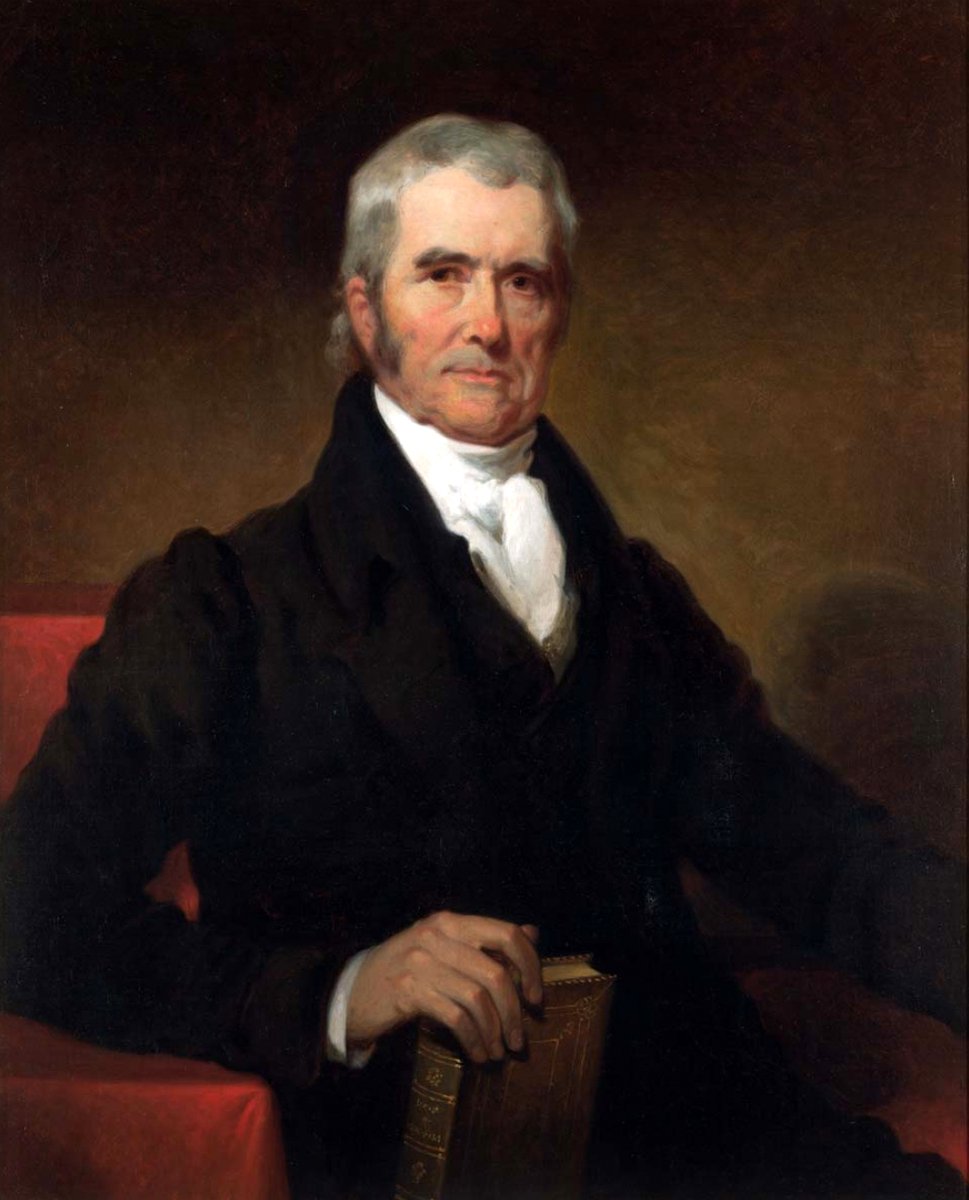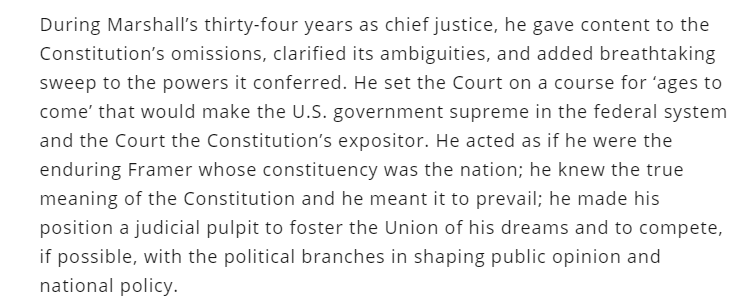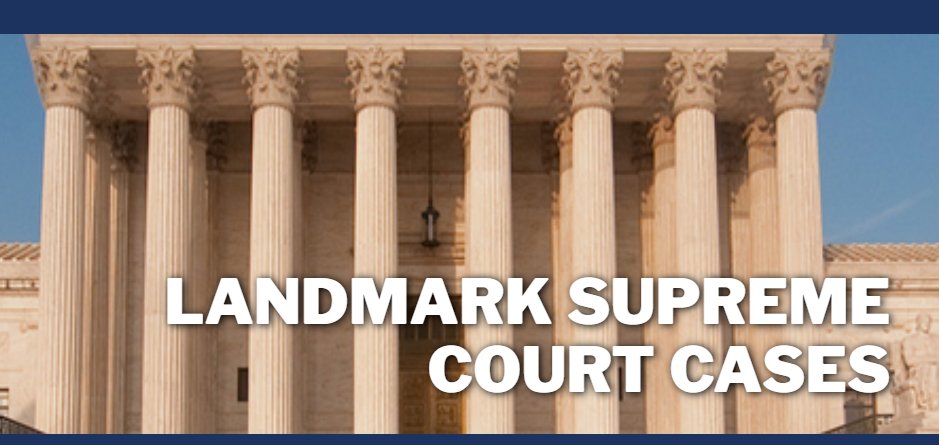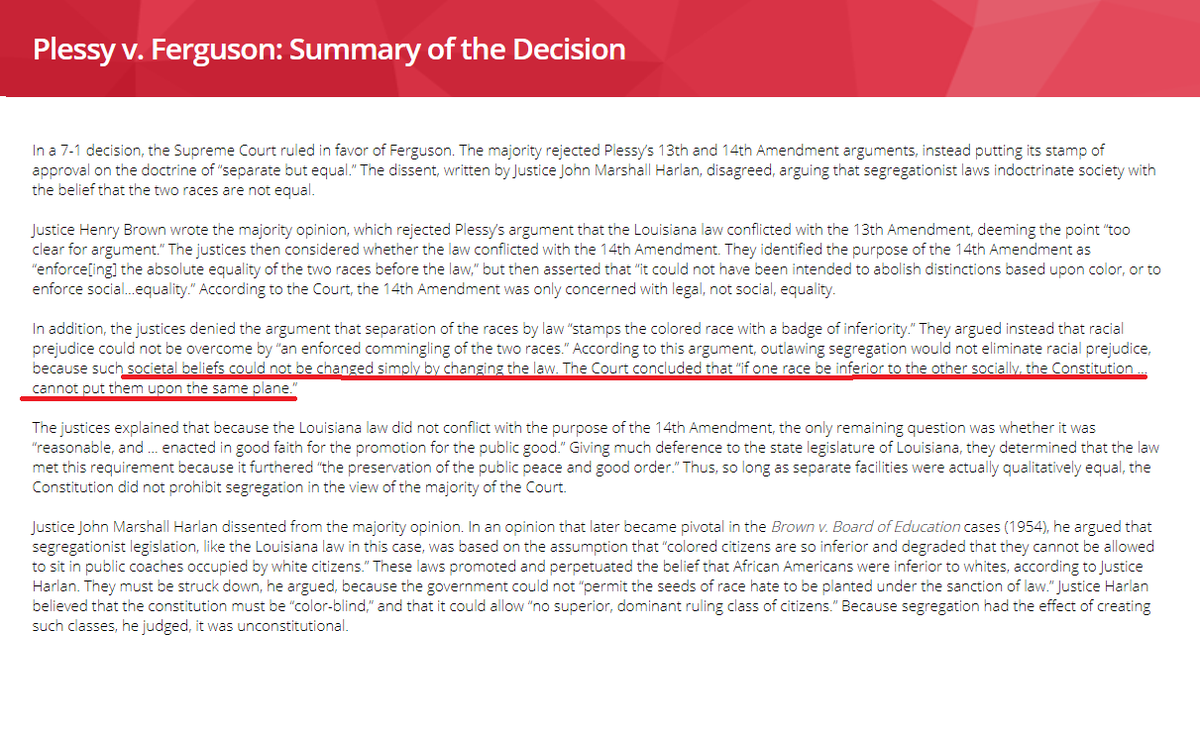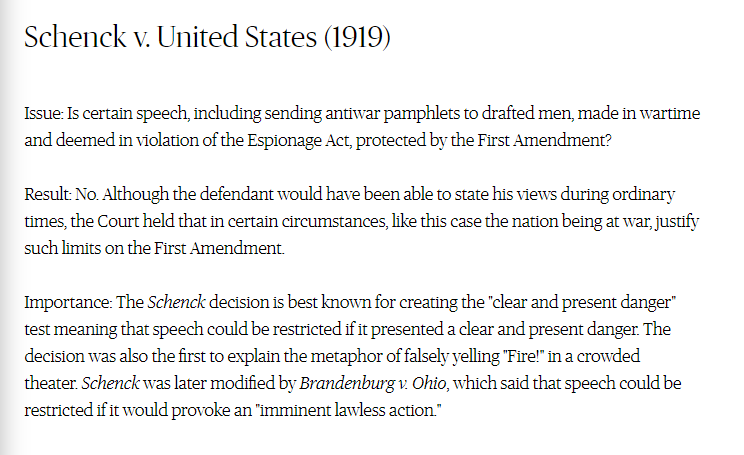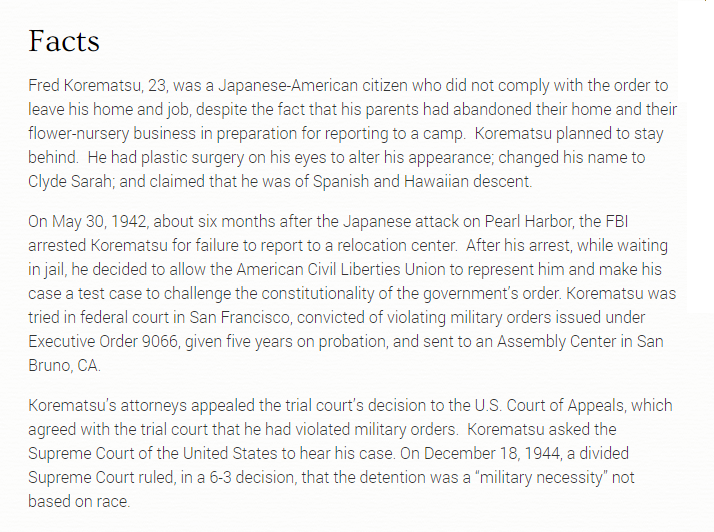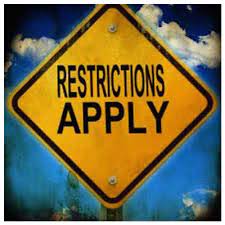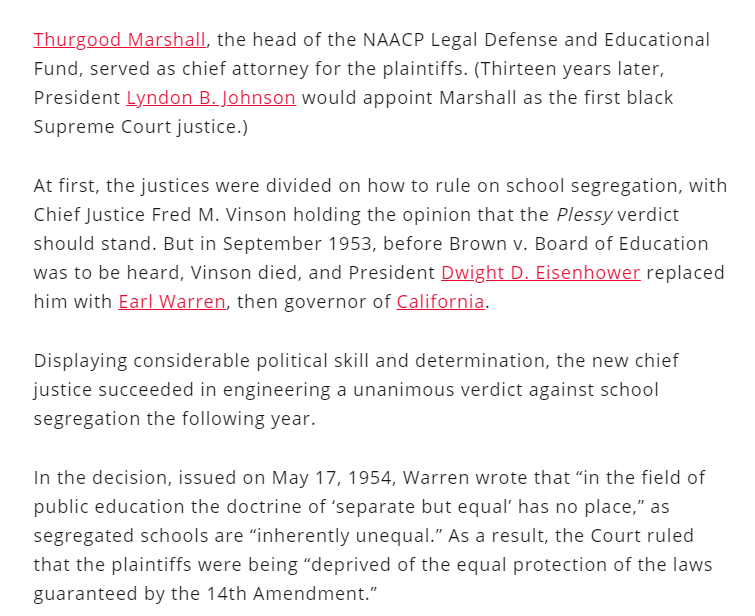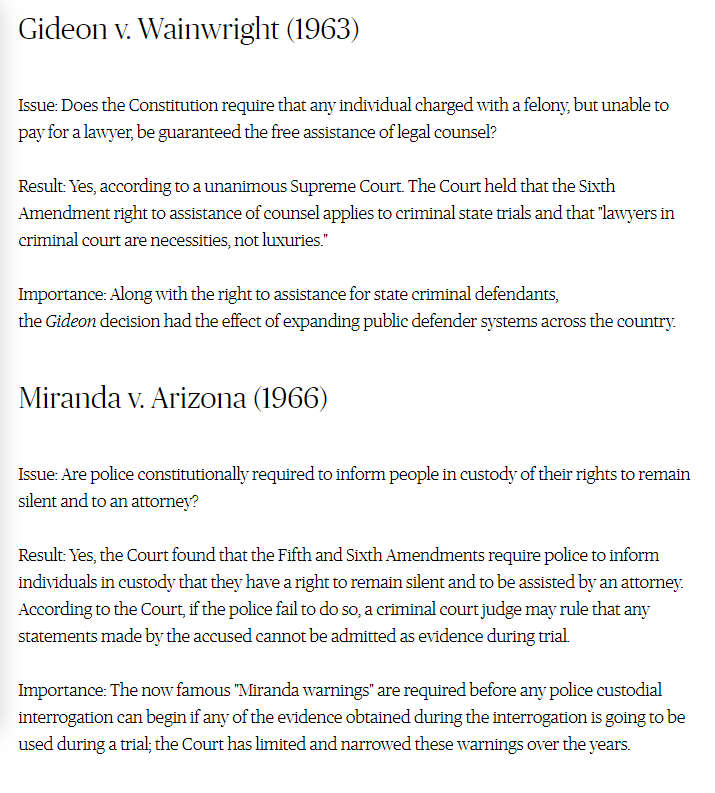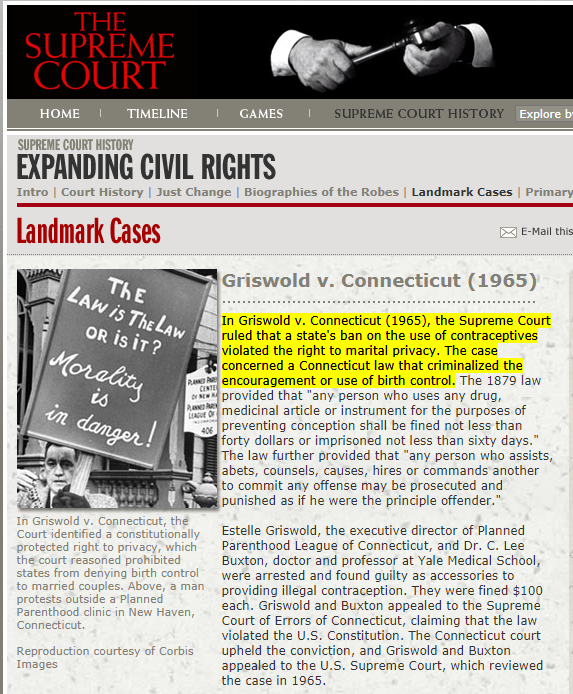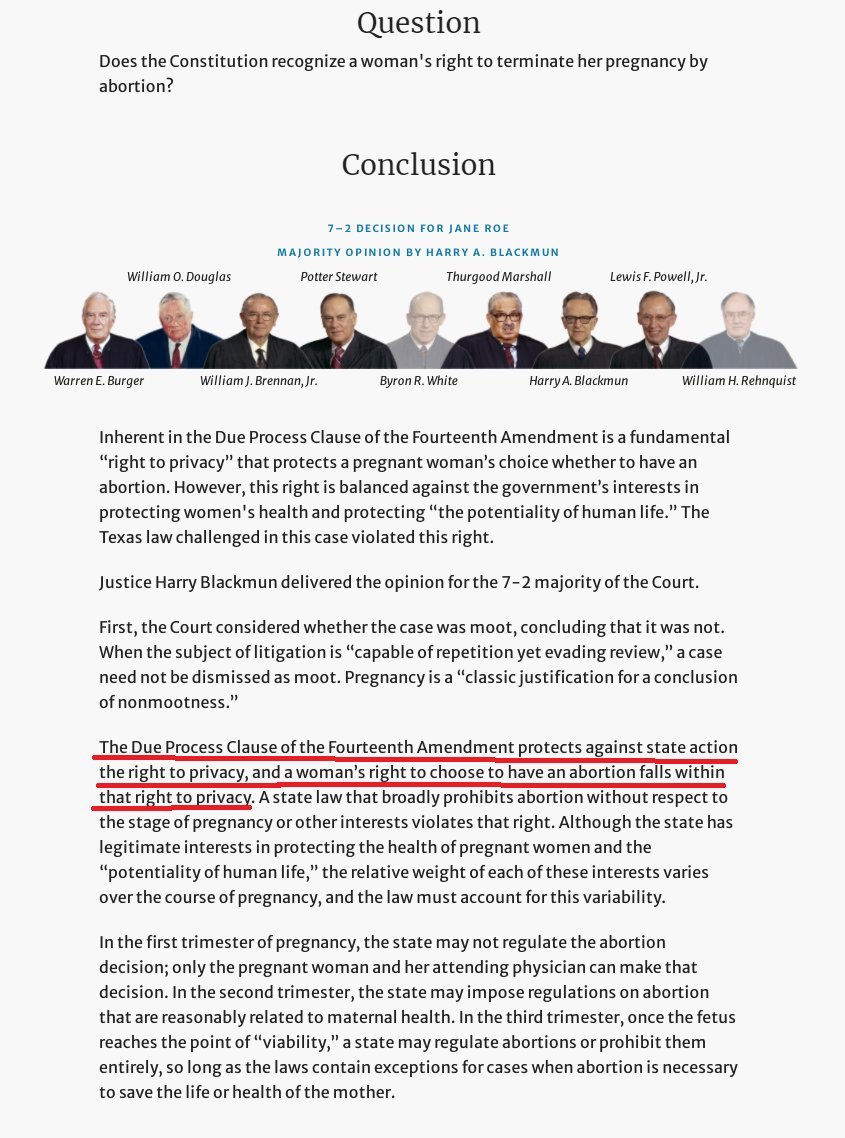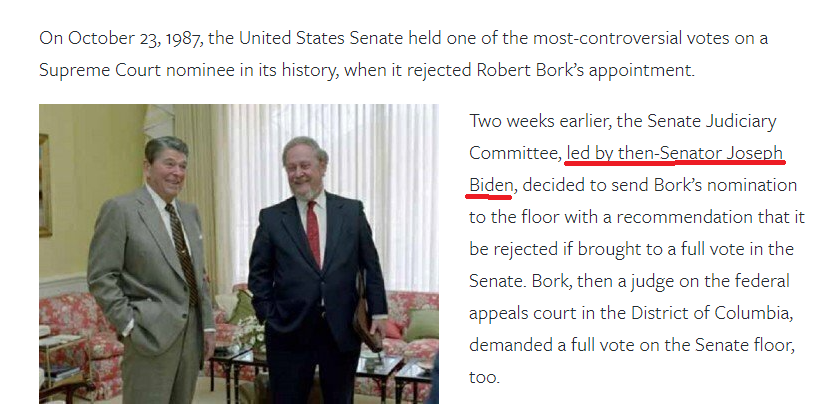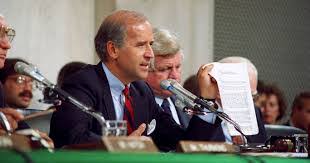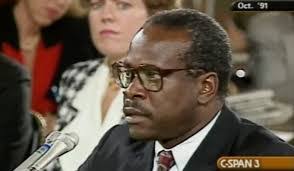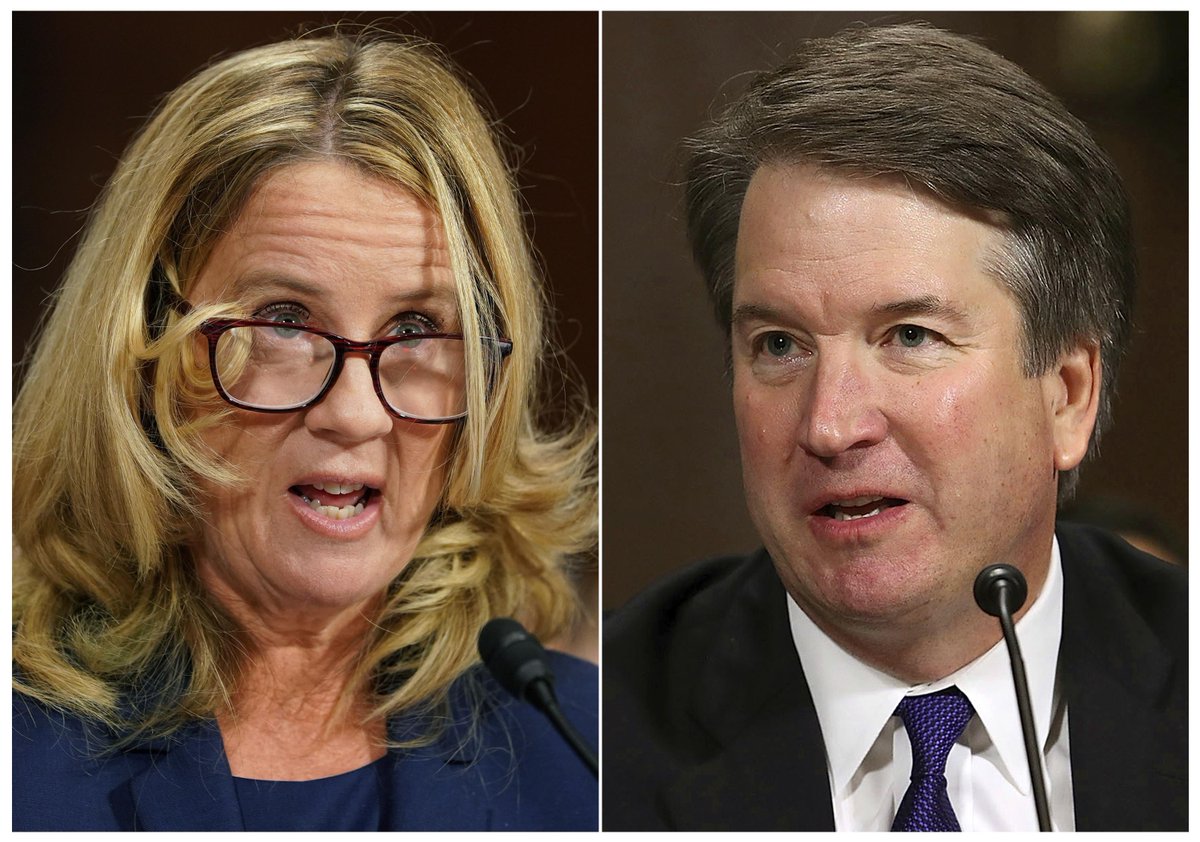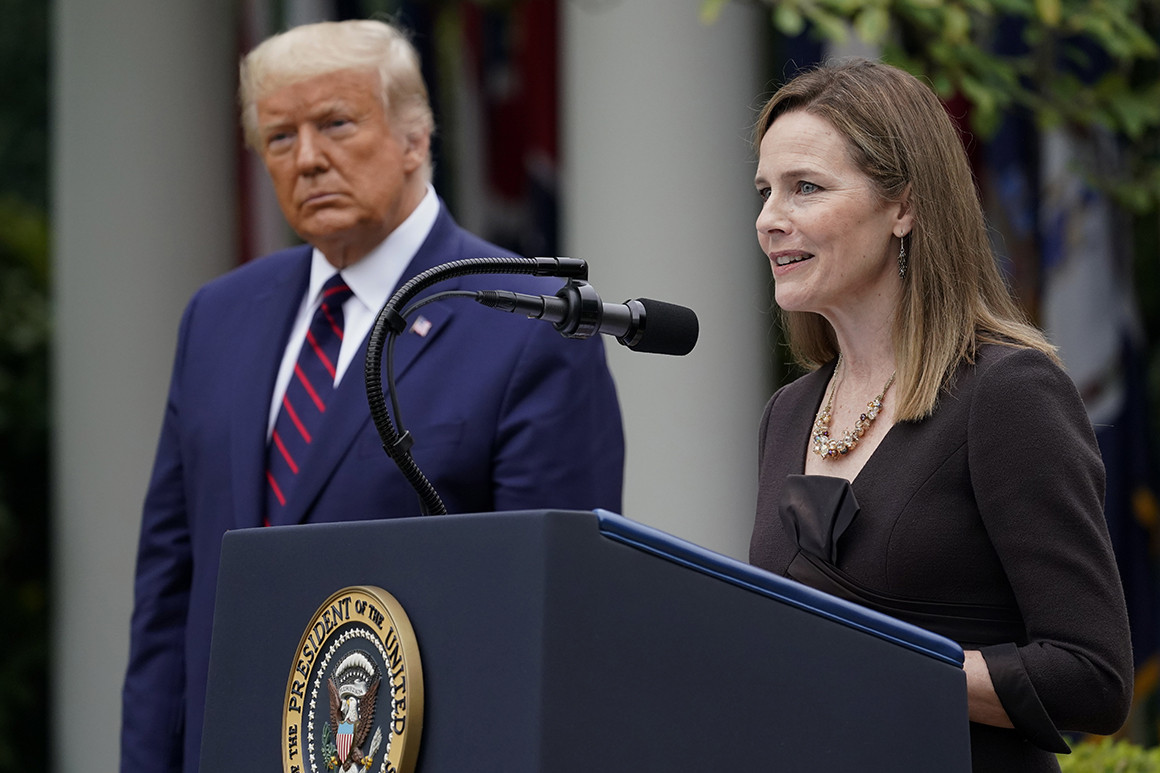History  https://abs.twimg.com/emoji/v2/... draggable="false" alt="🧵" title="Thread" aria-label="Emoji: Thread">Thread
https://abs.twimg.com/emoji/v2/... draggable="false" alt="🧵" title="Thread" aria-label="Emoji: Thread">Thread https://abs.twimg.com/emoji/v2/... draggable="false" alt="🧵" title="Thread" aria-label="Emoji: Thread"> on the Supreme Court.
https://abs.twimg.com/emoji/v2/... draggable="false" alt="🧵" title="Thread" aria-label="Emoji: Thread"> on the Supreme Court.
1- Confirmation of a Supreme Court Justice has become as contentious as electing a President. Perhaps worse.
How did we get here?
The answer lies in history, specifically the evolution from judicial restraint to judicial activism.
1- Confirmation of a Supreme Court Justice has become as contentious as electing a President. Perhaps worse.
How did we get here?
The answer lies in history, specifically the evolution from judicial restraint to judicial activism.
2- The Supreme Court was dealt the weakest of the three hands by the Constitution. It has less specifically enumerated powers.
Article III of U.S. Constitution describes the Supreme Court.
Article III of U.S. Constitution describes the Supreme Court.
3- The first Chief Justice was the legendary John Marshall. He is the most under-recognized American hero.
Without Marshall, there’s no telling if the Supreme Court would be as consequential as it is today.
https://www.history.com/topics/us-government/john-marshall">https://www.history.com/topics/us...
Without Marshall, there’s no telling if the Supreme Court would be as consequential as it is today.
https://www.history.com/topics/us-government/john-marshall">https://www.history.com/topics/us...
4- The first “landmark” case in the Supreme Court was the infamous “Marbury v. Madison” (1803). Its importance cannot be understated. https://www.history.com/topics/united-states-constitution/marbury-v-madison">https://www.history.com/topics/un...
5- It’s not important what “Marbury v. Madison” was about.
What’s important is that is established “Judicial Review”, i.e. the ability for the Supreme Court to declare an Executive branch action or Legislative branch law unconstitutional.
What’s important is that is established “Judicial Review”, i.e. the ability for the Supreme Court to declare an Executive branch action or Legislative branch law unconstitutional.
6- The early history of the Supreme cemented its position as a legitimate 3rd branch of government and cemented the States are subservient to the Federal Gov’t.
E.g. “McCulloch v. Maryland (1819)” and “Gibbons v. Ogden” (1824).
E.g. “McCulloch v. Maryland (1819)” and “Gibbons v. Ogden” (1824).
7- Now let’s explore some additional “Landmark Cases”, and their evolution.
Early in its history, major Supreme Court cases 𝐫𝐞𝐬𝐭𝐫𝐢𝐜𝐭𝐞𝐝 versus 𝐞𝐱𝐩𝐚𝐧𝐝𝐞𝐝 individual rights. This is critical to understand.
Early in its history, major Supreme Court cases 𝐫𝐞𝐬𝐭𝐫𝐢𝐜𝐭𝐞𝐝 versus 𝐞𝐱𝐩𝐚𝐧𝐝𝐞𝐝 individual rights. This is critical to understand.
8- One of the worst decisions in history was "Dred Scott v. Sandford" (1857). The Court ruled that Dred Scott; a slave, was property. He had no rights even though he had lived in free states.
Chief Justice Roger Taney wrote the majority opinion. The case fueled the Civil War.
Chief Justice Roger Taney wrote the majority opinion. The case fueled the Civil War.
9- More here on the Dred Scott v. Sandford case.
The Emancipation Proclamation and the 13th Amendment; overturning slavery, made the Dred Scott case moot. https://www.history.com/topics/black-history/dred-scott-case">https://www.history.com/topics/bl...
The Emancipation Proclamation and the 13th Amendment; overturning slavery, made the Dred Scott case moot. https://www.history.com/topics/black-history/dred-scott-case">https://www.history.com/topics/bl...
10- “Plessy v. Ferguson” (1896) was the infamous “Separate but Equal” case, that led to the Jim Crow era.
Note again that individual rights were restricted. “Sure, you get equal protection under the 14th Amendment, just not the same equal protection.”
Not our finest hour.
Note again that individual rights were restricted. “Sure, you get equal protection under the 14th Amendment, just not the same equal protection.”
Not our finest hour.
11- More here on "Plessy v. Ferguson".
It was eventually overturned by "Brown vs Board of Education" (1957). We& #39;ll get to that. https://www.history.com/topics/black-history/plessy-v-ferguson">https://www.history.com/topics/bl...
It was eventually overturned by "Brown vs Board of Education" (1957). We& #39;ll get to that. https://www.history.com/topics/black-history/plessy-v-ferguson">https://www.history.com/topics/bl...
12- Schenck v. United States (1919) was the infamous “Can’t yell FIRE! in a theater” case.
Again, note that this decision 𝐫𝐞𝐬𝐭𝐫𝐢𝐜𝐭𝐞𝐝 versus 𝐞𝐱𝐩𝐚𝐧𝐝𝐞𝐝 Constitutional rights.
Again, note that this decision 𝐫𝐞𝐬𝐭𝐫𝐢𝐜𝐭𝐞𝐝 versus 𝐞𝐱𝐩𝐚𝐧𝐝𝐞𝐝 Constitutional rights.
13- Almost as bad as Dred Scott was “Korematsu v. United States” (1944), about interning Japanese American citizens during WWII.
In short, citizens have rights until they don’t because "fear". Sounds like #COVID.
Btw, liberal FDR defenders always leave this one out.
In short, citizens have rights until they don’t because "fear". Sounds like #COVID.
Btw, liberal FDR defenders always leave this one out.
14- Let’s recap:
"Dred Scott" relegated slaves as property
"Plessy" restricted access to “separate but equal” facilities
"Schenck" restricted free speech
"Korematsu" restricted citizen rights
Lots of individual restrictions going on.
"Dred Scott" relegated slaves as property
"Plessy" restricted access to “separate but equal” facilities
"Schenck" restricted free speech
"Korematsu" restricted citizen rights
Lots of individual restrictions going on.
15- This all changed in 1957 with the landmark case “Brown v. Board of Education” (1954).
The Court unanimously overturned Plessy.
Thurgood Marshall was the lead attorney for the plaintiffs.
Also note the impact Earl Warren. More to come on him.
This was just & right.
The Court unanimously overturned Plessy.
Thurgood Marshall was the lead attorney for the plaintiffs.
Also note the impact Earl Warren. More to come on him.
This was just & right.
16- More here on “Brown v. Board of Education” (1954).
This marked a major shift in the Court, to 𝐞𝐱𝐩𝐚𝐧𝐝𝐢𝐧𝐠 versus 𝐫𝐞𝐬𝐭𝐫𝐢𝐜𝐭𝐢𝐧𝐠 rights. https://www.history.com/topics/black-history/brown-v-board-of-education-of-topeka">https://www.history.com/topics/bl...
This marked a major shift in the Court, to 𝐞𝐱𝐩𝐚𝐧𝐝𝐢𝐧𝐠 versus 𝐫𝐞𝐬𝐭𝐫𝐢𝐜𝐭𝐢𝐧𝐠 rights. https://www.history.com/topics/black-history/brown-v-board-of-education-of-topeka">https://www.history.com/topics/bl...
17- As Chief Justice, Earl Warren led a revolution to a more activist court. https://www.history.com/topics/us-politics/earl-warren">https://www.history.com/topics/us...
18- The Warren Court ruled on several cases you’ve heard of:
“Gideon v. Wainwright” (1963) asserted the right to legal counsel.
“Miranda v. Arizona” asserted 5th and 6th Amendment rights.
And so on.
“Gideon v. Wainwright” (1963) asserted the right to legal counsel.
“Miranda v. Arizona” asserted 5th and 6th Amendment rights.
And so on.
19- One particularly noteworthy case of the Warren Court was "Griswold v. Connecticut" (1965).
The ruling seems to make sense but beware the discovery of the "Right to Privacy" that isn& #39;t actually in the Constitution. It& #39;s important later.
The ruling seems to make sense but beware the discovery of the "Right to Privacy" that isn& #39;t actually in the Constitution. It& #39;s important later.
20- "Griswold" laid the foundation for the infamous "Roe v. Wade" (1973).
I don& #39;t need to tell you what this was about. Just note that the prior "Right to Privacy" was foundational.
I don& #39;t need to tell you what this was about. Just note that the prior "Right to Privacy" was foundational.
21- The Supreme Court, indeed all the Judiciary, was never the same after "Roe v. Wade". Liberals realized agendas could achieved through the courts when they failed in the legislature.
It led to the "borking" or Robert Bork by Ted Kennedy and Joe Biden (yes, that Joe Biden).
It led to the "borking" or Robert Bork by Ted Kennedy and Joe Biden (yes, that Joe Biden).
22- This also led to the character assassination of Clarence Thomas, once again led by Joe Biden (yes, that Joe Biden).

 Read on Twitter
Read on Twitter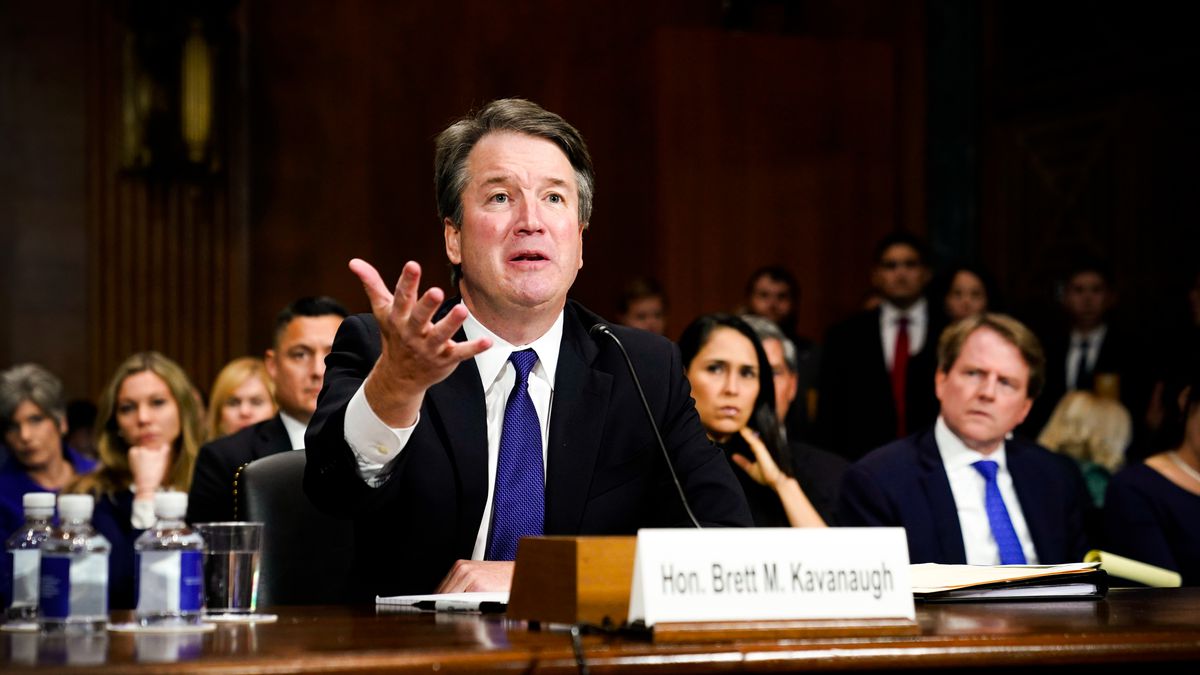 Threadhttps://abs.twimg.com/emoji/v2/... draggable="false" alt="🧵" title="Thread" aria-label="Emoji: Thread"> on the Supreme Court.1- Confirmation of a Supreme Court Justice has become as contentious as electing a President. Perhaps worse.How did we get here?The answer lies in history, specifically the evolution from judicial restraint to judicial activism." title="History https://abs.twimg.com/emoji/v2/... draggable="false" alt="🧵" title="Thread" aria-label="Emoji: Thread">Threadhttps://abs.twimg.com/emoji/v2/... draggable="false" alt="🧵" title="Thread" aria-label="Emoji: Thread"> on the Supreme Court.1- Confirmation of a Supreme Court Justice has become as contentious as electing a President. Perhaps worse.How did we get here?The answer lies in history, specifically the evolution from judicial restraint to judicial activism." class="img-responsive" style="max-width:100%;"/>
Threadhttps://abs.twimg.com/emoji/v2/... draggable="false" alt="🧵" title="Thread" aria-label="Emoji: Thread"> on the Supreme Court.1- Confirmation of a Supreme Court Justice has become as contentious as electing a President. Perhaps worse.How did we get here?The answer lies in history, specifically the evolution from judicial restraint to judicial activism." title="History https://abs.twimg.com/emoji/v2/... draggable="false" alt="🧵" title="Thread" aria-label="Emoji: Thread">Threadhttps://abs.twimg.com/emoji/v2/... draggable="false" alt="🧵" title="Thread" aria-label="Emoji: Thread"> on the Supreme Court.1- Confirmation of a Supreme Court Justice has become as contentious as electing a President. Perhaps worse.How did we get here?The answer lies in history, specifically the evolution from judicial restraint to judicial activism." class="img-responsive" style="max-width:100%;"/>
